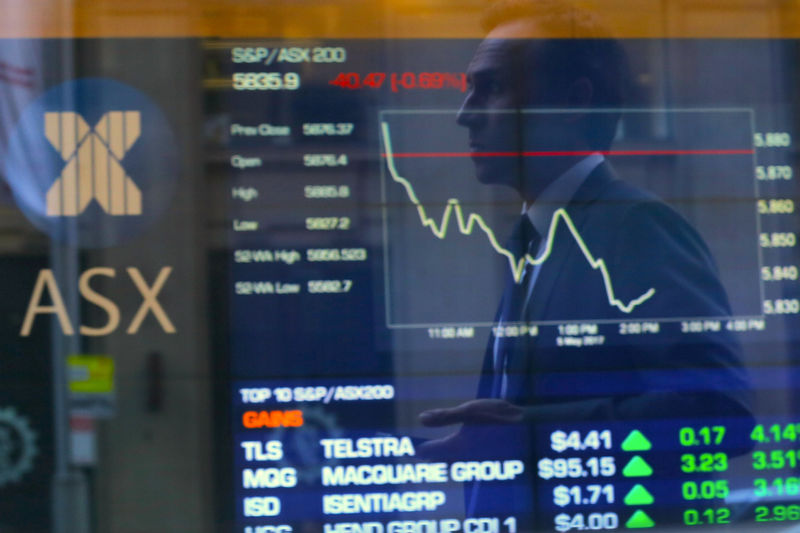The ASX is predicted to get off to a weak start after a soft day of trade on Wall Street overnight, with futures down 0.5% to 7,875 points early this morning.
The Dow Jones did tip an intraday record of 40,051, driven by more rate-cut wishcasting following data indicating a slowdown in consumer prices and robust corporate earnings.
But it was not to last – by session end, the index had dropped by 39 points or 0.1%, while the S&P 500 fell 0.2% and the Nasdaq shed 44 points or 0.3% after hitting all-time highs earlier in the day.
Walmart (NYSE:WMT) surges, Meta slips
Among individual stocks, Walmart's shares surged 7% as the retail giant revised its fiscal 2025 sales and profit forecasts upwards, citing expected benefits from easing inflation.
Conversely, Cisco Systems (NASDAQ:CSCO) dropped 2.7% after analysts labelled its 2025 forecast as overly conservative.
Deere saw a 4.7% decline following its second downward revision of annual profit projections.
Meta Platforms slipped 1.7% amid an EU probe into child safety concerns on Facebook (NASDAQ:META) and Instagram.
European markets ended their nine-day winning streak, with the automobile sector leading the decline. BMW and Daimler (ETR:DAI) Truck fell 6.3% and 5.1%, respectively, after trading ex-dividend.
The continent-wide FTSEurofirst 300 index decreased by 0.2%, while the UK FTSE 100 index slipped by 0.1%.
EasyJet's shares dropped 6% following the announcement of CEO Johan Lundgren's planned departure and reported first-half losses aligning with expectations.
US economic data presented mixed signals. Initial jobless claims fell by 10,000 to 222,000 last week, while industrial production remained flat in April.
Import prices rose 0.9% and export prices increased 0.5%.
Housing starts grew by 5.7% in April, but building permits decreased by 3%.
New York Fed President John Williams expressed scepticism about imminent rate cuts.
Currencies and commodities
In currency markets, the US dollar strengthened against major currencies. The Euro fell to US$1.0853, the Aussie dollar to 66.53 US cents, and the Japanese yen to JPY155.40 per US dollar.
Global oil prices rose slightly, with Brent crude increasing by 52 US cents to US$83.27 a barrel and US Nymex crude by 60 US cents to US$79.23 a barrel.
Base metal prices fell, with copper futures down 1.6% and aluminium futures down 0.2%. Gold prices also declined, with futures dropping by US$9.40 to US$2,385.50 an ounce.
Iron ore futures, however, rose by 55 US cents to US$116.85 a tonne, buoyed by optimism over Beijing’s measures to address the Chinese property crisis.
Housing affordability
A RBA member says while there are signs that the housing supply crisis might be easing, there are no quick fixes.
Assistant governor (economic) Sarah Hunter told a Hobart real estate conference that some developers might be seeing strength in underlying demand and responding with new supply.
"Federal and state government initiatives that streamline the approvals and build process will also reduce costs, which will ultimately lift supply.
"But it will not be a quick fix. Demand pressure, and so upward pressure on rents and prices, will remain until new supply comes online.
"We expect this response to take some time to materialise, given the current level of new dwelling approvals and the information from liaison that many projects are still not viable.
“In the meantime, we expect residential construction activity to remain relatively subdued."
Hunter noted that demand might also be adjusting to the housing shortage and higher prices, which might start putting downward pressure on rents.
